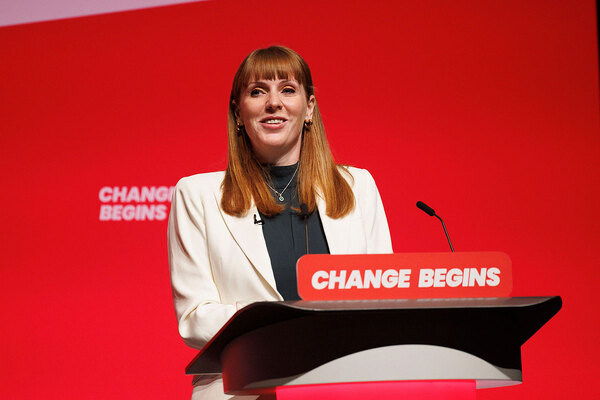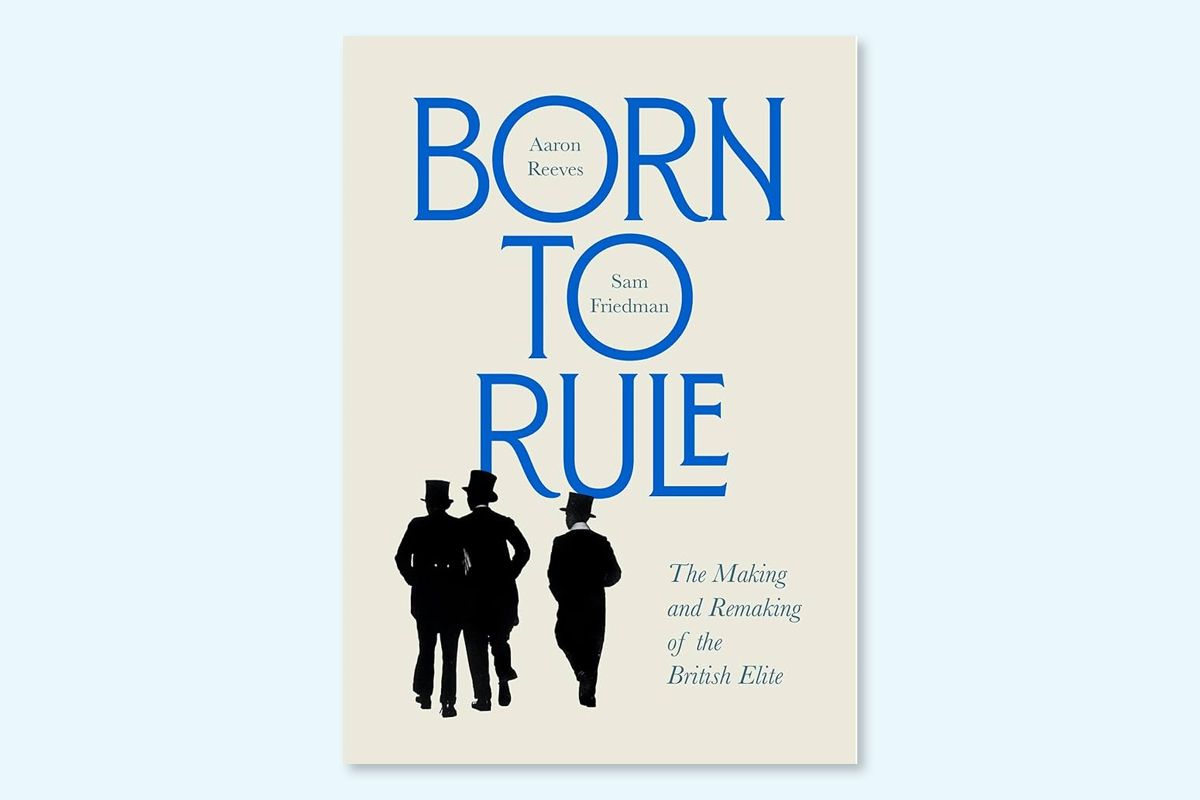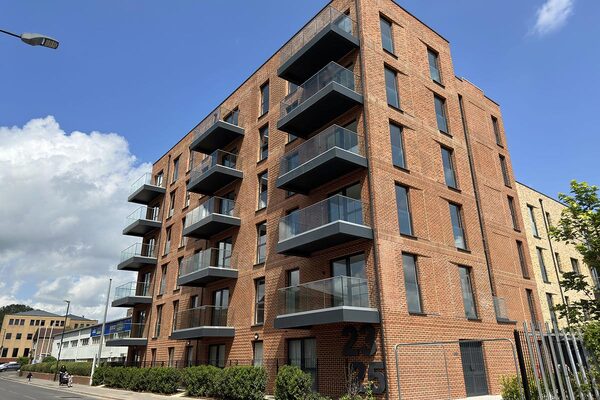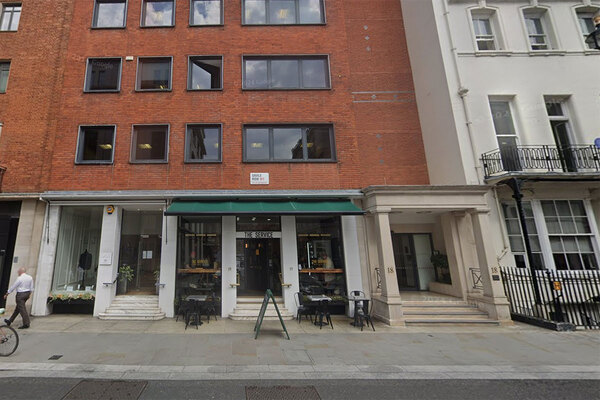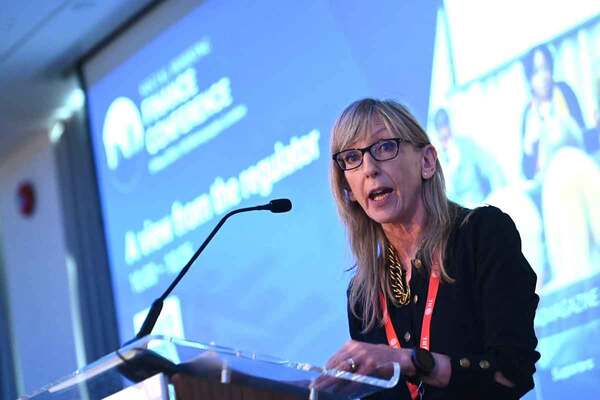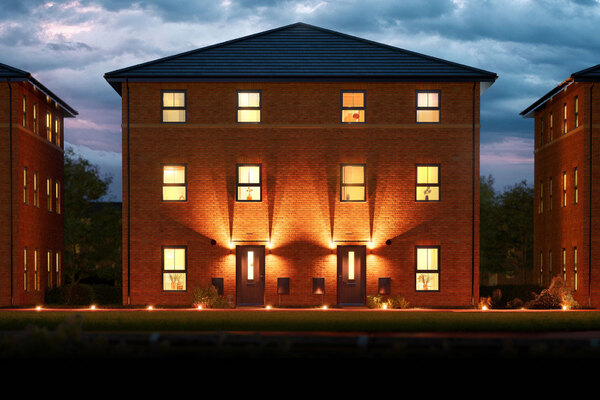You are viewing 1 of your 1 free articles
Oxford professor Aaron Reeves: why affordable housing is less of a priority for the British elite
A new book tracks the political priorities of Britain’s ruling class and how they differ from the population at large, with affordable housing a case in point. James Riding speaks to Aaron Reeves, one of the authors
If you harbour a nagging suspicion that the opinions of the rich and powerful diverge from those of the general British population, you may be right.
In a new book, Born to Rule: the Making and Remaking of the British Elite, sociologists Aaron Reeves and Sam Friedman explore how Britain’s ruling class rank different policies, including affordable housing.
The results are eye-opening. Elites think the government should prioritise other objectives such as education, growing the economy and improving the environment over affordable housing. By contrast, the wider British population feel that affordable housing takes precedence over the environment, education and even health.
Mr Reeves, who is associate professor in the Department of Social Policy and Intervention at the University of Oxford, speaks to Inside Housing about his findings and whether a Labour government will give affordable housing the attention it deserves.
In their research, Mr Reeves and Mr Friedman asked all current members of Who’s Who (a list of 33,000 notable British people) about their political attitudes and policy preferences. They compared the results to surveys where the same questions had been asked of the UK population, such as the British Social Attitudes survey and YouGov polls.
In some areas, the British elite is “fairly closely aligned” with the UK population. Members are more likely to support raising taxes so that more money can be invested in “health, education and social security” (70% versus 56% in the wider public).
However, the book says that elites favour “across the board tax hikes” and spending on education, whereas the public wants tax rises to “fall on the rich” and are more concerned with “reducing crime and poverty, ensuring housing is affordable, and improving the health care system”.
Housing is “the third or fourth biggest priority” for the general population, “both in terms of what they want government to do and what they want government to spend their money on”, Mr Reeves says. “Whereas for elites, it’s a very different story.”
For ‘wealth elites’, defined by Mr Reeves as 6,000 people with both positional and economic power, “even things like defence spending are bigger” than housing. In terms of political priorities for these people, he says “affordable housing is lower than just reducing poverty in general”.
That affordable housing is less of a priority the wealthier a person is, seems intuitive. “People want to protect the investment that they’ve made in their property” and “ensure that their house price remains buoyant”, he explains.
Likewise, as you might expect, Mr Reeves says that people who grew up in a working-class background are “much more in favour of prioritising affordable housing” than those who did not. This relationship is “playing out a little bit” now in the government, he adds, where Labour ministers such as housing secretary Angela Rayner are responding to a set of priorities “in part because they share some memories, some experiences, with being in families that struggled to afford the housing they grew up in”.
However, there are also “really strong social pressures” that mean people “want to own, and both political parties have prioritised that”. Those who do not own often want to, he adds, so prioritising homeownership is “not a vote loser” for renters.
The obsession with homeownership is also why the Labour government is hesitant to completely repeal the Right to Buy policy. “I see Right to Buy and homeownership in general as a bit like inheritance tax,” Mr Reeves says, a policy that “symbolically means something quite big to people”. Lots of voters “either imagine they are going to be affected by [it] or would like to be affected by it and wouldn’t want to lose the money”.
Where it becomes “a bit messier”, he says, is exactly what the general public wants ministers to spend their money on.
Mr Reeves identifies a tension in what the public want. “They want government to be doing something about [housing], but it’s not totally that they want government to do the spending on it. Whereas for health, they very clearly do want government to be doing the spending.”
What is behind this discrepancy? It might reflect the housing market that we have, with most housing built by private companies rather than councils. But Mr Reeves says there is also “probably still some stigma in the general population about social housing” and people who “might believe, rightly or wrongly, that that kind of housing brings with it other kinds of problems”.
“You could make an argument that people want government to do something, but they’re not sure that social housing is the answer to that problem,” he continues. By contrast, “if you propose things like rent controls, I can imagine people maybe being more in favour of [them]”.
The public’s polarisation over spending on affordable housing has consequences. Mr Reeves proposes that it creates an “ambiguity that elites and particularly policymakers are able to inhabit, which means that inaction is possible in a way that [inaction on] the NHS [is not]”.
Some politicians genuinely believe that “there’s something degrading about being in social housing”, he says. More work must be done to “destigmatise” the tenure among elites because its social benefits are crucial.
“It’s an old problem. We’ve tried a whole bunch of mechanisms to try and solve it, and the reality is the one that worked best was social housing,” Mr Reeves states. “It is the solution if we want to solve the problem of affordable housing.”
“Maybe now we have a slightly better chance of making that argument land… [but] political elites change quite a lot” while the rest of the elites “haven’t really changed”. Those attitudes and views and perspectives “have not magically, overnight, reversed.”
In a policy area such as housing, he says: “People from finance and business and the civil service and politicians are all getting together to solve that problem, and even if you change one constituent part of it, it doesn’t necessarily change all the rest.”
Inside Housing asks Mr Reeves why reform for private renters has been so politically difficult. Earlier this month, the government introduced the Renters’ Rights Bill to parliament after the previous administration broke its five-year promise to ban Section 21 no-fault evictions.
It is a conundrum, he says. “Many elites may not be renters themselves, but you would imagine that they have family members or people they are close to who are.” Part of the answer is that “wealth really does insulate you from many of those dynamics”, and “a non-trivial amount of the wealth that people hold in general is housing wealth”.
“If you’re very wealthy, which the wealth elite in our sample are, then it means you’re not only able to insulate yourself, but probably also many of the people that you care about from being exposed to the indignities of the lower end of the rental market,” he explains.
Mr Reeves and Mr Friedman describe this phenomenon in the book as ‘wealth as world-making’: “the people that orbit you in your everyday life will also have different kinds of experiences precisely because of your wealth”.
For now, however, the government is pressing on with its housing objectives and there are grounds for optimism. As Mr Reeves puts it: “You would hope that changing the dynamics of the people in charge would also lead to a slightly different set of priorities and things like affordable housing would become higher on the agenda”.
Born to Rule: the Making and Remaking of the British Elite by Aaron Reeves and Sam Friedman was published on 10 September by Harvard University Press.
Sign up for our daily newsletter
Already have an account? Click here to manage your newsletters

